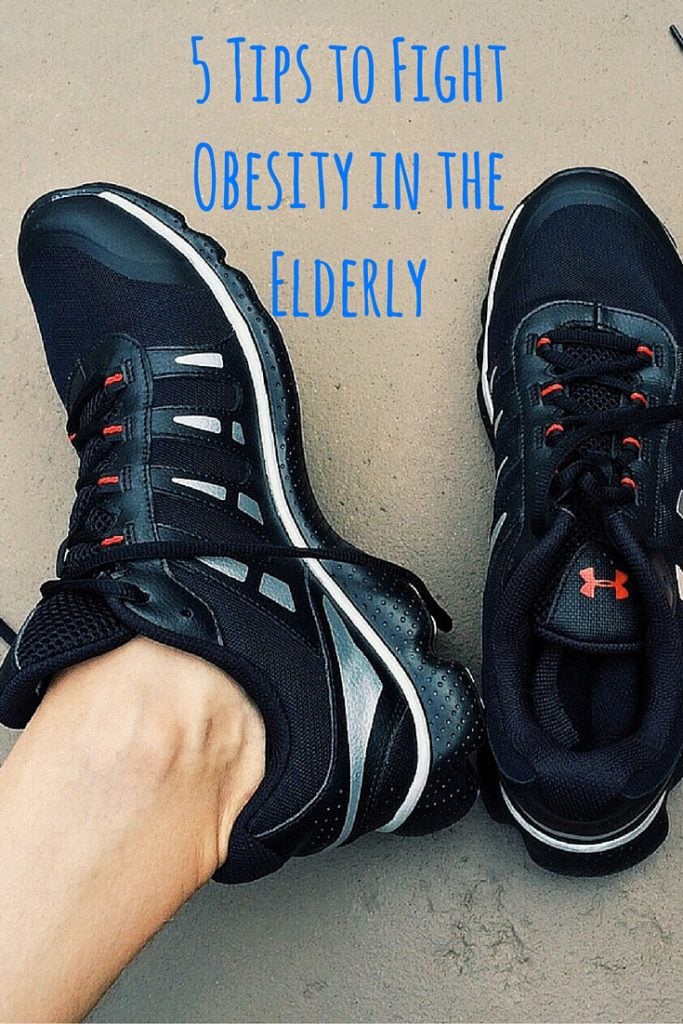It’s Never Too Late to Fight Obesity
It’s never too late to fight obesity no matter your age! From fitness at 40 to 75, your age shouldn’t matter when it comes to your health because it can improve your overall quality of life in so many ways! Check out how to fight obesity at any age!
Fight obesity at any age
While child and adult obesity consistently make the news, a new and concerning group joining the obese community is the elderly.
Obesity in elders can’t be ignored. Not only do we feel lethargic when we are carrying around excess pounds, but numerous studies have proven that obesity can even lower our cognitive function, and make the elderly more prone to falls, accidents, and other serious injuries.
This makes obesity a serious concern for friends, family, medical teams, caregivers, and other home health care supporters of our elderly population.

As our age progresses, there are also certain unavoidable physical changes. As we age, we tend to lose lean body mass which creates a lowered metabolism. However, there are ways to stay healthy and counter obesity in old age.
They start with reviewing and controlling our diets and adding or adjusting our physical workouts. Here are some ways to counter obesity:
1. Working out
While planning workout methods, older people have to be very careful. It is important to focus on minimizing muscle and bone loss while ensuring proper balance and coordination. One study found that yoga, in particular, is a great workout for seniors.
In a new study appearing in the International Journal of Yoga, yoga proved a promising therapy for improving both balance and coordination in the elderly. It’s recommended to consult with a physical therapist and/or personal trainer to ensure that exercises are both appropriate to the needs of the individual and being completed in proper form.
2. Walking
Walking to curb obesity is a simple and relatively easy activity for the elderly. It’s easier on bones and joints due to the activity’s low impact while still being effective in controlling weight. The most important aspect in walking to reduce obesity is how long and how far you walk – not how fast.
The good news for starters is they can even start up walking at a leisurely pace, it will still be beneficial.
3. Weight training
As we grow old, the two things in our bodies become more and more vulnerable – bones and muscles. If elders want to start weight training they should consult with a weight trainer, and their physician, to determine the best weight and routine to start with.
The more lean body mass we have, the higher our metabolic rate is and the more efficiently we burn calories. The American Heart Association explains that even moderate weight training can have very positive health effects – especially for the elderly.
Weight training is really good in so many ways, therefore those who can do it must do it. There were numerous benefits to resistance training including gained strength, glucose, and lipid metabolism changes, and increased cardiovascular health.
4. Physical therapy
Under certain obesity conditions, it is advisable and effective for the elderly to participate in physical therapy. Targeted workouts, with an understanding of physical limitations and health conditions, can be very helpful in achieving desired results and avoiding injuries.
5. Dietary changes
Calorie counting is important to curb obesity as well. The imbalance of calories in and calories out doesn’t need to be significant – it adds up quickly. In the elderly, even as little as 50 extra calories in a day may cause them to gain weight.
Obesity in the elderly may lead to serious health issues related to the strength of their bones, breathing problems, back pain, knee pain, joint pain, and cardiovascular diseases. It’s important to seek medical guidance and consult with physicians, nutritionists, and personal trainers, to address this growing health problem.
Ask for your diet options in consultation with your physician and a dietitian to know what would be an adequate diet. A good amount of daily protein and fresh fruits and vegetables, along with low fat, low carbohydrate diet is recommended to make sure you are getting the calories, vitamins, and nutrients your body needs to heal and thrive.
Another of the seemingly inevitable factors of aging is bone density loss. It is highly recommended to consume the right amount of calcium to counter this problem.
The elderly are normally advised to take low-fat milk or calcium supplements in addition to eating a diet rich in leafy greens.
An in-home meal planner and home helper can be an invaluable addition for elderly homeowners who need extra help preparing healthy, nutritious meals. For more information on this topic, please visit Family Assets.
Wrap-Up
If you want to fight obesity at any age, losing weight is all about disease prevention. It also ensures good health and an overall “feel-good” life. Weight loss can improve mood, concentration, and even curb feelings of loneliness and depression.
Elderly obese people must know that even shedding off a small amount of weight can give significant improvements.
With the proper support, they can maintain a disciplined, healthy lifestyle for many years to come.
- 5 Best Exercises That Will Shape Your Booty - November 4, 2021
- How To Get Out Of Depression With Home Fitness Activities - February 3, 2017
- 4 Fitness Myths about Exercising As You Get Older - November 17, 2016